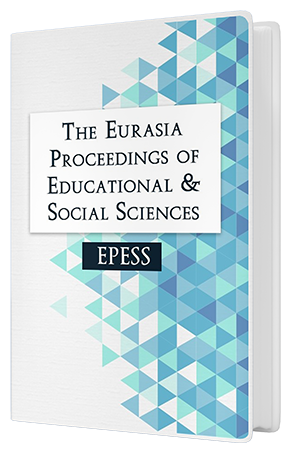EVALUATION OF ALGORITHM IMPLEMENTATION ASSESSMENT METHODS BASED ON A DATA STRUCTURE COURSE
Keywords:
Algorithm implementation, programming assessment, assessment methodologies, data structures, c programmingAbstract
Implementing algorithms and making abstractions are two integral parts of computer programming. Algorithm implementation process involves understanding a business problem, designing the most appropriate solution and abstracting this in a programming environment. Thinking within the syntax of a programming language and generating algorithms simultaneously are often found challenging by students. More importantly, majority of students do not necessarily understand the underlying reasons behind the multiple assessment methods used in the evaluation of algorithm implementation. Some students believe that the theoretical measurements for algorithm implementation are not directly related to the practical development of solutions and hence, they do not see the point of theoretical exams particularly in algorithm implementation process. In this paper, we analyze the methodologies used for the evaluation of algorithm implementation. The Data Structures and Data Organization course thought at the Faculty of Engineering in Cyprus International University (CIU) has been selected as a pilot course to perform a rigorous study in order to compare the theoretical and the practical exam results of students. The aim of the study was to understand whether or not there was a significant relationship between the theoretical and practical exam results. The raw data of the study came from 100 students who were randomly selected without considering their previous background or programming knowledge. The correlation between students’ programming capabilities and their theoretical knowledge were analyzed in order to state whether or not their performance in theoretical exams are authentic when compared to their practical exams.Downloads
Published
Issue
Section
License
Copyright (c) 2014 The Eurasia Proceedings of Educational and Social Sciences

This work is licensed under a Creative Commons Attribution-NonCommercial-ShareAlike 4.0 International License.
The articles may be used for research, teaching, and private study purposes. Any substantial or systematic reproduction, redistribution, reselling, loan, sub-licensing, systematic supply, or distribution in any form to anyone is expressly forbidden. Authors alone are responsible for the contents of their articles. The journal owns the copyright of the articles. The publisher shall not be liable for any loss, actions, claims, proceedings, demand, or costs or damages whatsoever or howsoever caused arising directly or indirectly in connection with or arising out of the use of the research material. All authors are requested to disclose any actual or potential conflict of interest including any financial, personal or other relationships with other people or organizations regarding the submitted work.




